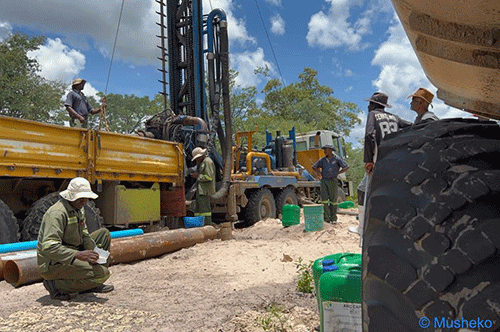ONGWEDIVA – Thirteen boreholes are currently being drilled in the Oshikoto region to address the water crisis.
The agriculture ministry’s spokesperson Jona Musheko said the total value of the project is N$6.5 million. “There’s more drilling that we will continue doing in Oshikoto and other regions,” he added.
Water tankers have likewise been delivered to the affected schools and clinics in the region.
The region, which continues to face water scarcity, especially in the deep rural areas where water pressure is low, carried out an experimental intervention in rural constituencies which are historically prone to saline underground water.
This situation forced teachers and school learners to travel long distances to fetch water from the wells. However, agriculture minister Calle Schlettwein announced earlier this year that the ministry has allocated N$15 million to address water shortages in the northern regions.
He was responding to regional councillors and traditional leaders who highlighted water scarcity within their regions.
The minister said they will remain responsive and committed to addressing the water issues with the urgency they warrant. Schlettwein further stressed that water is essential to human beings and livestock, “therefore, it is very important that people have clean water to drink”. Meanwhile, Eengodi councillor Protasius Neshuku said the residents, especially the elderly and expecting women, are no longer going to walk long distances to fetch water from wells because they will receive new boreholes very soon.
– fhamalwa@nepc.com.na


